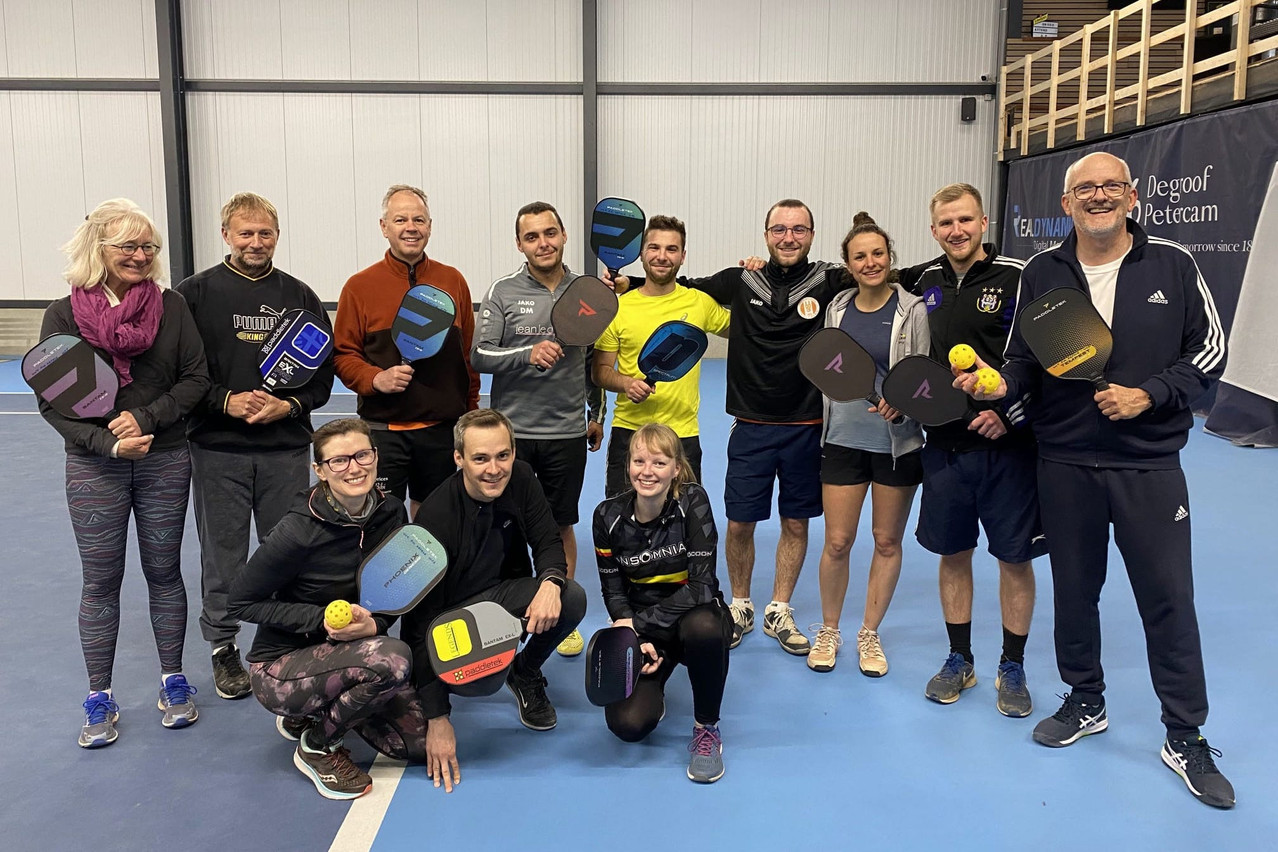It’s the fastest-growing sport in the US, according to the Sports and Fitness Industry Association: more than 100 new pickleball courts are being built in the US every month.
“It’s very dynamic but also very accessible,” says Valentin Quisquater, a marketing manager at communications firm Paragon who, alongside his father, has been instrumental in bringing Pickleball to Luxembourg. “It can be very intense.”
The game is played with paddles and a plastic ball, and although in form it closely resembles tennis it is, explains Quisquater, much easier to learn. “After half an hour [playing pickleball for the first time] you understand the basic rules and you know how to play--and you start to have fun.”
It’s also less strenuous than tennis, he adds, which may make players less prone to injury. The game is friendly for all ages: “You can put whatever intensity you want into the game… you can be really hard on yourself for two hours or you can be chill.”
Taking off in Luxembourg
As proof of the game’s accessibility for new players, Quisquater cites some recent numbers: Letzpickleball currently boasts about 60 members, out of around 400 players who have tried out the game since the courts opened in March 2022. “That’s quite a high ratio of people who keep playing it,” he observes.
Letzpickleball operates in two locations, one of which is admittedly in Arlon, but which serves the Luxembourg community along with TC Howald.
It was Benoit Quisquater who introduced the sport to the grand duchy last year by creating both Letzpickleball and the Pickleball Commission, which is now (as of 2 March) part of the Luxembourg Tennis Federation. Together, the Quisquaters (along with other devoted pickleball players in these organisations) want to boost the sport’s visibility by getting more local tennis clubs to offer it and by doing outreach in schools. Eventually, they hope the community will grow enough for tournaments of the type already held in the neighbouring countries.
“The Pickleball Commission invites all tennis and racquet sports enthusiasts to come and discover this sport during a free trial session,” Letzpickleball wrote in a recent press release, adding that municipalities, schools and sports clubs are welcome to contact them too.
Quisquater (the younger) is confident in the swift growth of the sport: “We play Monday, Tuesday and Thursday, between the two clubs… surely next year we’ll open a fourth [session]. It’s going fast.”
Why “pickle”?
The game itself isn’t new: it was invented in 1965 in the United States. But where does the name come from? Reportedly, the wife of one of the game’s inventors once compared it to a type of boat called a pickle boat--but the family dog was also named Pickle. Later accounts suggest that the dog was named after the sport, and not vice versa, and still another story points to an observation, made by another of the inventors, that how you hit the ball puts your opponent in a pickle.
“Who cares?” says Quisquater with a laugh.
